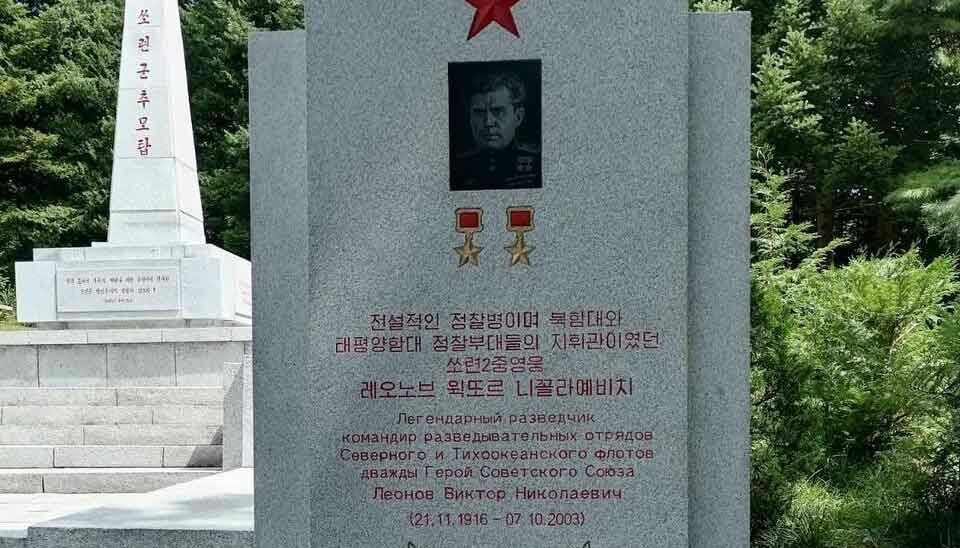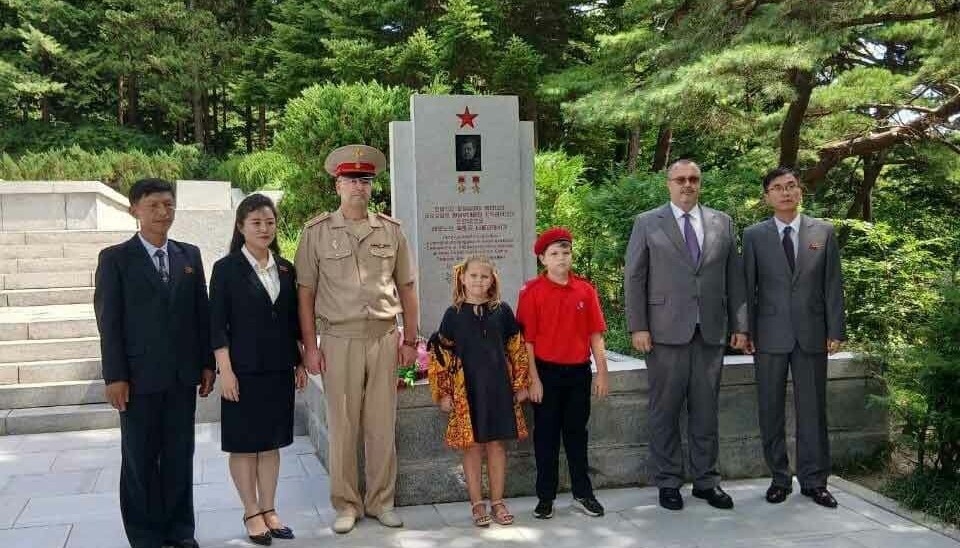
Soviet agent who fought Nazis in Northern Norway is praised in North Korea
Viktor Leonov served as intelligence officer in the Northern Fleet during WWII and took part in combat operations on Finnish and Norwegian soil. This week, a memorial plate with his name was erected at the North Korean naval base in Wonsan.
Leonov was a top Red Army intelligence officer in the North, as well as in the Far East. He fought against the Germans along the Barents Sea coast and against the Japanese in East Asia.
The Russian embassy in North Korea now honours the agent for his contribution to the 'fight against Japanese militarists' and for 'the liberation of Korea.' The new memorial plate was erected as relations between the two aggressive dictatorships have grown increasingly intimate.

The career of Leonov started with service on the Soviet submarine Shch-402 (Щ-402) in the period between 1937 and 1940. He was subsequently transferred to the newly formed 181st Separate Reconnaissance Detachment of the Northern Fleet, with which he reportedly carried out about 50 combat operations behind enemy lines.
The intelligence officer was ultimately appointed deputy commander of the detachment for political affairs and later commander of the 181st Special Reconnaissance Detachment, a propagandistic account of his achievements explains.
The loyal agent and Communist Party member reportedly played a key role in the conquering of the German stronghold of Liinakhamari, Finnish Petsamo, in mid-October 1944 and the subsequent fighting in Eastern Finnmark, Norway.
In Polyarny, the Russian Northern Fleet naval base and intelligence hub, he won great fame and was declared an 'honorary citizen.'
Following operations in the Northern Fleet, Leonov was transferred to the Soviet Far East where he continued intelligence operations for the Pacific Fleet.
The agent, who died in 2003, now lives on at a stone plate in the town where he and his men, according to the propagandist narrative of the Russian embassy, took 3,500 Japanese soldiers prisoners, captured several arms storage houses, three artillery batteries and five aircraft.
The new monument in Wonsan is sponsored by the Russian foreign ministry together with two military veterans' organisations.
Russia's relationship with North Korea has grown increasingly strong as Pyongyang has contributed with a significant part of the weaponry, as well as manpower, used in the war of aggression against Ukraine.















